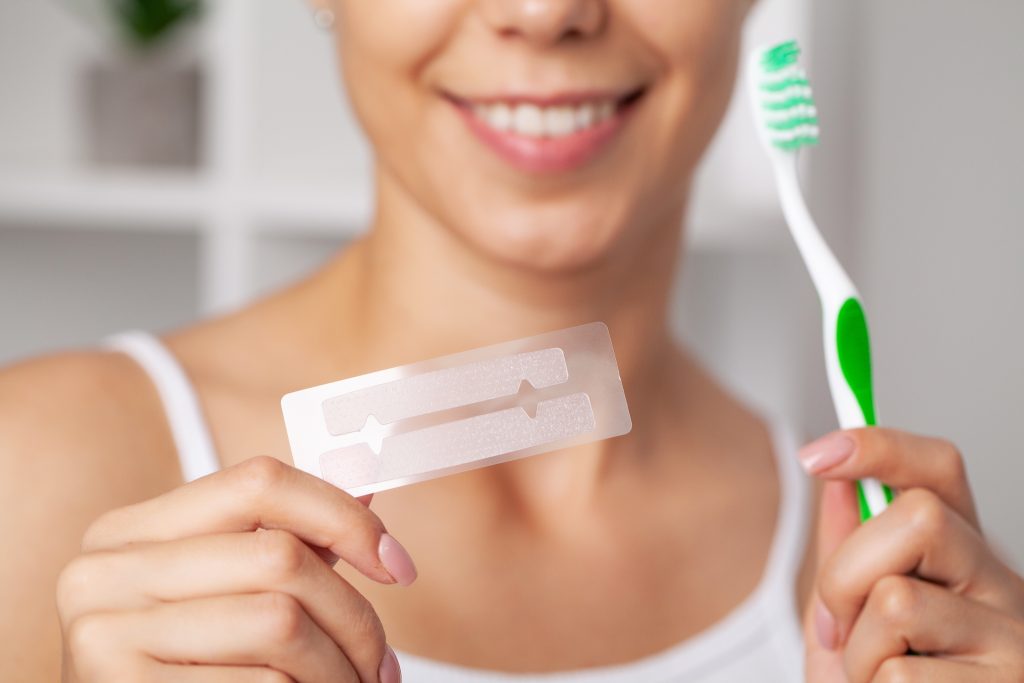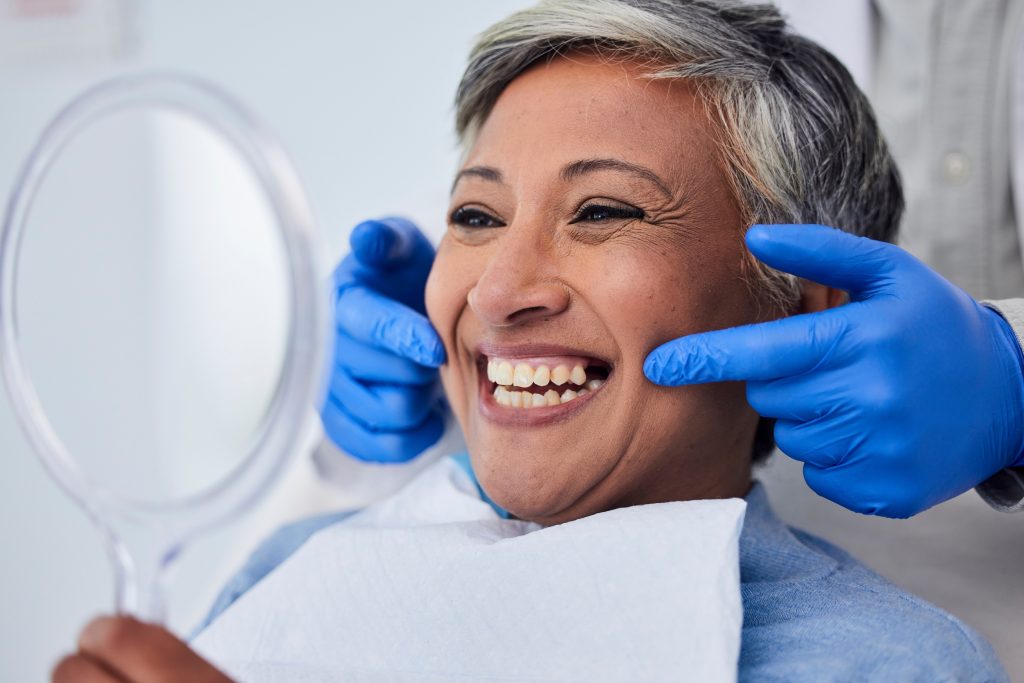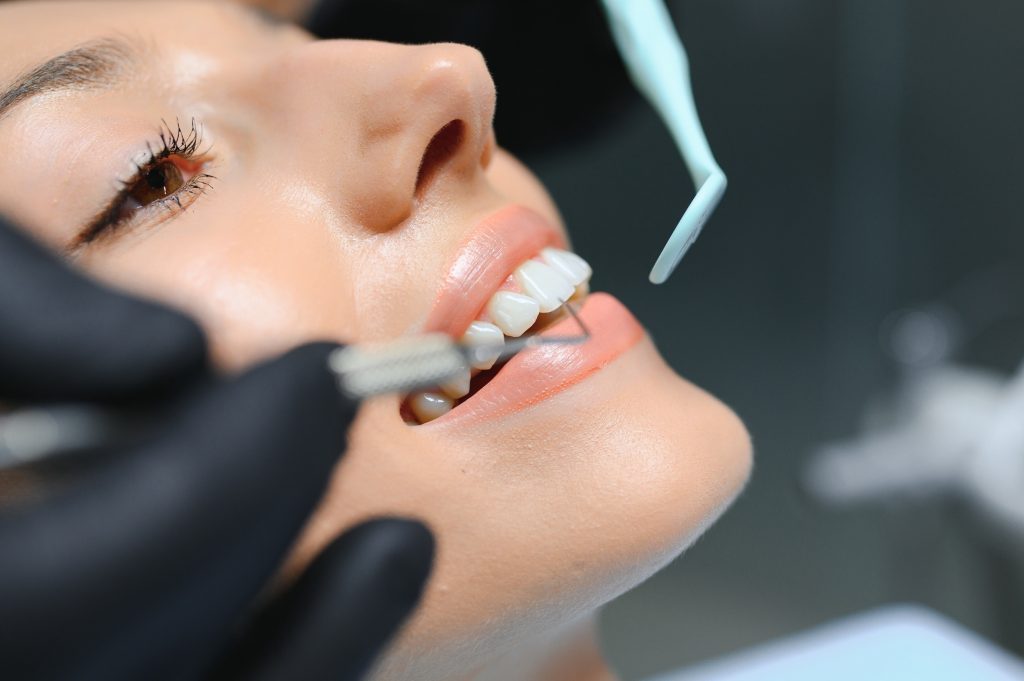
In the pursuit of a brighter smile, many people turn to over-the-counter whitening strips for convenience and cost. But while these products may promise quick results, they often come with long-term risks that can affect your oral and overall health. As a Miami holistic dentist, we believe patients deserve safe, biocompatible solutions that enhance their smile without compromising wellness.
Let’s take a closer look at what makes conventional whitening strips risky and how holistic dentistry offers safer, more sustainable alternatives.
What Are Whitening Strips Made Of?
Most over-the-counter whitening strips contain hydrogen peroxide or carbamide peroxide, powerful bleaching agents designed to break down stains on the surface of the teeth. These chemicals can be effective in lifting discoloration caused by coffee, wine, or tobacco, but their frequent or improper use can also harm your teeth and gums.
Whitening strips are often unregulated in concentration, and many users apply them too often or leave them on longer than recommended, hoping for faster or more dramatic results. Unfortunately, that can cause more harm than good.
The Risks of Whitening Strips
As a holistic and family holistic dentist, we look at how products affect the entire body and not just the smile. Here are some of the hidden dangers of whitening strips that every patient should be aware of:
1. Enamel Erosion
Repeated exposure to peroxide weakens the enamel, the outer protective layer of your teeth. Once enamel is worn down, it cannot be restored, making teeth more sensitive, brittle, and prone to decay.
2. Tooth Sensitivity
One of the most common side effects of whitening strips is heightened sensitivity. The chemicals can penetrate into the inner layers of the teeth, irritating the nerves and causing discomfort when eating or drinking hot or cold items.
3. Gum Irritation and Chemical Burns
Because whitening strips are not custom-fit, the bleaching agents often come into contact with soft tissues like the gums. This can lead to inflammation, burns, or even recession over time.
4. Imbalance in the Oral Microbiome
Peroxide is not selective in what it kills. It can disrupt the healthy bacteria in your mouth that help protect against cavities and bad breath. Overuse may result in a microbial imbalance that affects your entire oral ecosystem.
5. Potential Systemic Effects
According to the National Institutes of Health, chronic exposure to peroxide and other whitening agents may lead to oxidative stress at the cellular level. While more research is needed, this adds another reason to approach whitening with caution.
Safer Whitening Alternatives
As a Miami holistic dentist, our goal is to help you achieve a naturally radiant smile without compromising long-term health. We offer several safe, non-toxic alternatives that prioritize your wellness:
Professional Holistic Whitening
Our in-office treatments use lower concentrations of peroxide combined with remineralizing agents to protect your enamel and reduce sensitivity. Treatments are fully customized to your needs, ensuring safe and consistent results.
Mineral-Based Whitening Products
We recommend toothpaste and whitening powders that contain natural minerals like hydroxyapatite or bentonite clay. These ingredients gently polish the teeth while strengthening enamel and supporting a healthy oral microbiome.
Oil Pulling
This traditional practice involves swishing coconut or sesame oil in the mouth for 10 to 20 minutes. While it does not bleach teeth, oil pulling can help reduce plaque and bacteria, giving your smile a cleaner and brighter appearance over time.
Diet and Lifestyle Changes
We help patients identify staining habits such as frequent coffee, red wine, or tobacco use and suggest alternatives or stain-prevention techniques. Simple changes like drinking through a straw or rinsing with water after meals can make a noticeable difference.
Custom Take-Home Whitening Kits
For those who want an at-home option, we offer biocompatible whitening trays tailored to your teeth. These are designed to minimize gum exposure and allow for safe, gradual whitening with holistic-grade ingredients.
Choose Holistic Whitening That Works With Your Body
At our practice, we never compromise health for aesthetics. Whitening should never come at the expense of enamel strength, gum health, or overall balance. As a holistic and family holistic dentist, we take the time to evaluate your unique oral health needs and recommend options that align with your lifestyle and wellness goals.
If you’ve experienced sensitivity or damage from whitening strips or simply want to explore safer ways to brighten your smile we’re here to help.
Book your consultation with a Miami holistic dentist today and discover the natural way to achieve a confident, healthy smile.






